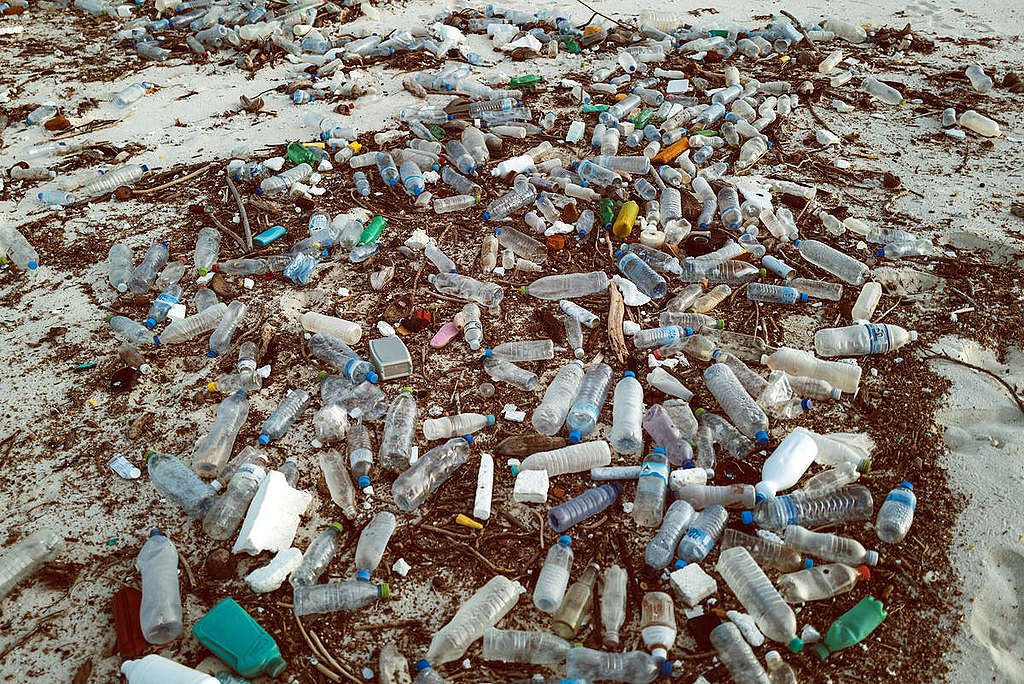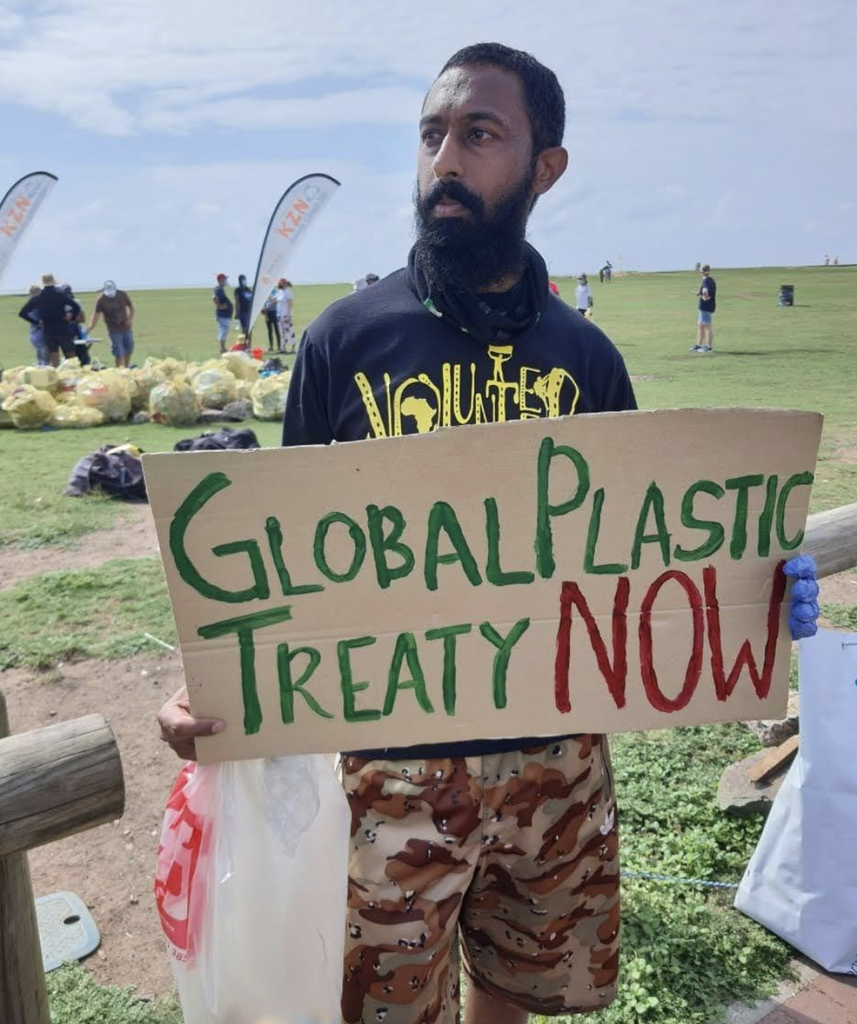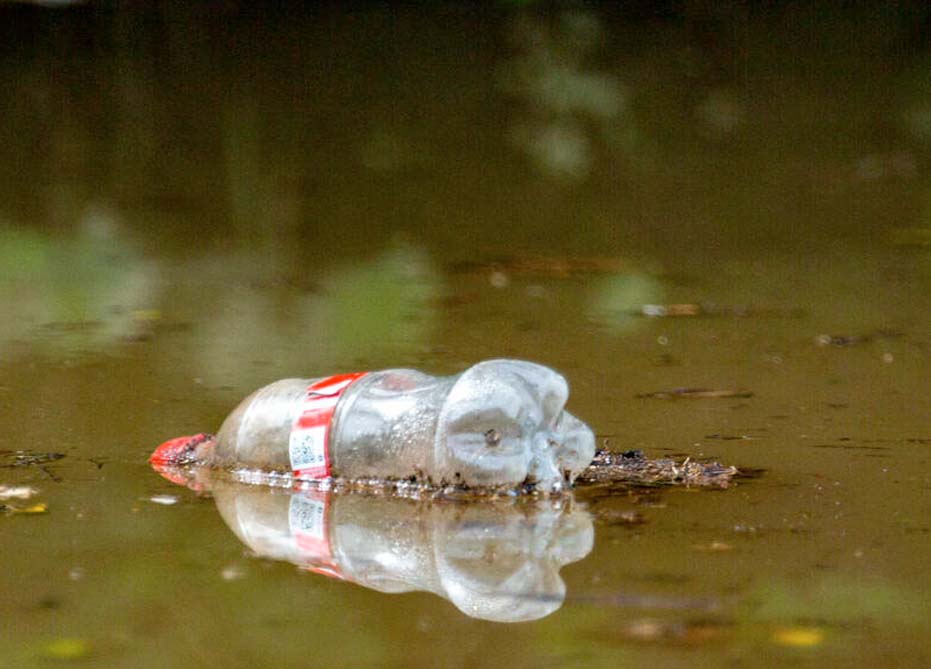Plastic pollution is fast spiralling out of control and if left unchecked it might be too little too late by the time the world finally decides to do something about it. The current plastic crisis leaves no room for status quo and requires a global approach with all relevant players within the whole plastic life cycle. Despite various approaches by different players from governments, NGOs, and even communities trying to deal with the plastic crisis, the problem is still persistent and escalating fast.
Corporations and big business have been preaching clean ups and recycling as solutions to the plastic crisis, however recycling is a false solution. If indeed it was a solution, then we wouldn’t be having plastics everywhere in our communities. Research shows that only 9% of the plastic produced gets recycled. The rest is either burned, dumped in landfills or ends up in the oceans.
For the first time in history, conversations are underway to rethink how we manufacture, use, trade, transport, and manage plastics. The conversations for a legally binding global plastic treaty that includes the whole life cycle of plastics are aimed at tackling the plastic crisis on a global scale.

Governments are slowly recognising the threat plastics pose to life on this planet, to our ecosystems and economies. They are finally listening to the millions of voices around the world who want to end plastic pollution. This is an opportunity for Africa’s governments to join this holistic and ambitious treaty to curb plastic pollution.
In September 2021 Rwanda and Peru presented the first draft that will negotiate for an international binding approach towards the plastic pollution crisis. Another resolution was also presented by Japan presented by the end of 2021 aiming at an internationally legally binding instrument for marine plastic pollution. Both drafts will be the foundation of a global negotiation agreement at the UN Environment Assembly (UNEA 5.2) this February 2022.
UNEA 5.2 will be a boiling pot for the member states to deliberate on an international instrument that will be able to address these challenges.
The Rwanda-Peru resolution which is widely supported and more ambitious covers elements that give a realistic approach towards this global crisis. The Rwanda-Peru resolution consists of;
an intergovernmental Negotiating Committee will be established that will negotiate a legally binding instrument.
Holistic approach on the plastic full life cycle from extraction to disposal. This is with the view on how widely plastic pollution stretches and the conclusion that it’s not limited to marine litter.
Focusing on solutions using the waste hierarchy starting with reuse and reduction. The Treaty aims at sidelining false solutions such as recycling and bioplastics which has not helped the solution.
Putting workers and communities who are impacted by the plastic crisis at every level of the plastic life cycle while facilitating a just transition for the communities and individuals.
UNEA 5.2 presents a rare opportunity for the member states to align and face the plastic issue as one by supporting a legally binding Global Plastics Treaty. The support to the treaty from the member states demonstrates consistency, willingness, political support and financial support all of which are crucial for tackling the plastic crisis. The Treaty is bold and unprecedented which is exactly what’s needed during such times when the fossil industry is steadily doubling down on plastic production due to the persistent wave of popularity and embracement of renewable energy.
A lot is hanging in the balance while we anticipate the adoption of the resolution this month in Nairobi and we hope Africa will be leading the way. The global treaty is the much-awaited real solution to the plastic pollution crisis with a quick turnaround to cut down on plastic production, reintroduction of reuse, and refill traditional packaging across the globe. The Rwanda-Peru resolution offers us a silver bullet to deal with the global plastic crisis, an opportunity if missed will highlight the disregard of our leaders for the people and the planet.


Call on the NZ Government to ban unnecessary single-use plastic bottles* in NZ, and to incentivise reusable and refillable alternatives.
